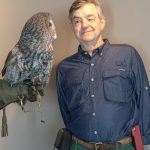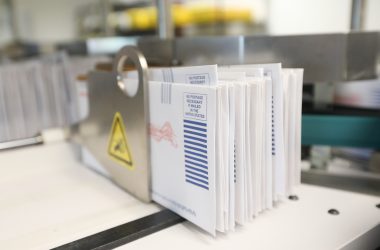Salem city councilors Linda Nishioka and Virginia Stapleton are going to present a proposed environmental proclamation at the April 8 council meeting. It is specifically aimed at reducing the amount of artificial light our species pours forth into the environment. Here are opening lines of the proposed proclamation:
“Whereas, light pollution is the excessive use of artificial light and can have serious environmental consequences for humans, wildlife, and our climate…
Whereas, highways, habitat and skies lit with artificial light interfere with the vision, foraging, and dispersal activities of many mammals…
Whereas, hundreds of bird species use stars to navigate at night. Lights from nearby cities, towers, and other facilities disorient their migration and veer them off course, which cause them to slam into surfaces or circle endlessly, wasting crucial energy…”
Why is light pollution important? It has widespread negative effects on wildlife. Moths and many other insects find themselves driven to be near artificial light, not living their lives as they have for previous millennia.
Mammals that are active at night need the dark. Now they are exposed from parks to parking lots. Highways, habitat and skies lit with artificial light interfere with the vision, foraging, and movements of nocturnal mammals.

Night migrating birds from sparrows to swallows can be attracted to lighted buildings or transmission towers. Hundreds of bird species use stars to navigate. Lights from cities, towers, and other facilities disorient their migration and they veer off course. Many then slam into surfaces or circle endlessly, wasting crucial energy.
Sea turtle hatchlings rely on the moon and starlight reflecting off the ocean at night to direct them to the safety of the water. After birth, they orient toward the brightest light on the beach. That’s bad news for baby sea turtles born on brightly lit beaches in developed coastal areas such as Florida. Instead of heading toward waves sparkling with moonlight, the turtles are often drawn toward brightly lit roads and parking lots, where they quickly die.
Artificial light interferes with amphibians, who detect light levels 100 times dimmer than humans. Prolonged exposure to bright lights affects their hormones, skin coloration, thermoregulation, and reproduction.
Many zooplankton feed near the surface of water bodies at night, and at the bottom of ponds, lakes and oceans by day to avoid predation. Artificial light causes them to stay at lower elevations, which affects animals up the food chain that need them for food.
Humans, too, need natural darkness for sound sleep and good health.
Oregon is making progress in curtailing night light. The world’s largest darkness sanctuary is now in southern Oregon. Here’s that story: https://www.opb.org/article/2024/03/15/southern-oregon-dark-sky-sanctuary/
Read more about Dark Skies Oregon: https://www.darkskyoregon.org/
This article was updated twice after publication to reflect a date change for the planned council proclamation. Councilors originally planned it for April 8, then moved it to April 22, then moved it back to April 8. Salem Reporter apologizes for any confusion.
For information about upcoming Salem Audubon programs and activities, see www.salemaudubon.org, or Salem Audubon’s Facebook page.
Harry Fuller is an Oregon birder and natural history author of “Freeway Birding” and the newly-published “Birding Harney County.” He is a member of the Salem Audubon Society. Contact him at [email protected] or atowhee.blog. His “Some Fascinating Things About Birds” column appears regularly in Salem Reporter.
SUPPORT OUR WORK – We depend on subscribers for resources to report on Salem with care and depth, fairness and accuracy. Subscribe today to get our daily newsletters and more. Click I want to subscribe!

Harry Fuller is an Oregon birder and natural history author of three books: “Freeway Birding,” "Great Gray Owls of California, Oregon and Washington," and "San Francisco's Natural History--Sand Dunes to Streetcars." He leads birding trips for the Malheur Field Station. He is a member of the Salem Audubon Society, and leads bird trips locally. Harry has just published a new book, BIrding Harney County.









